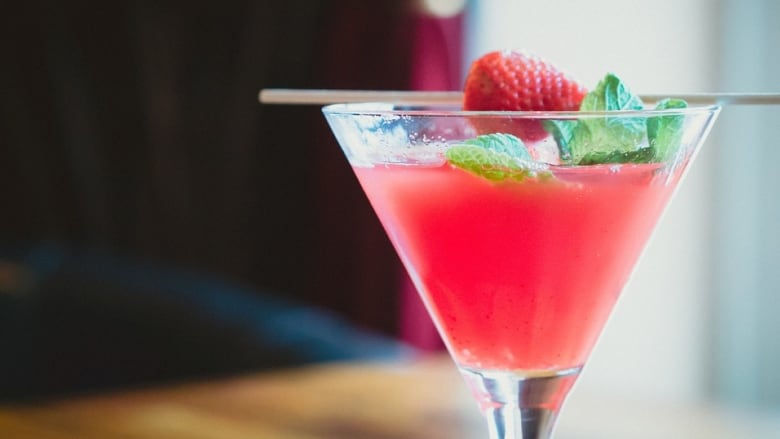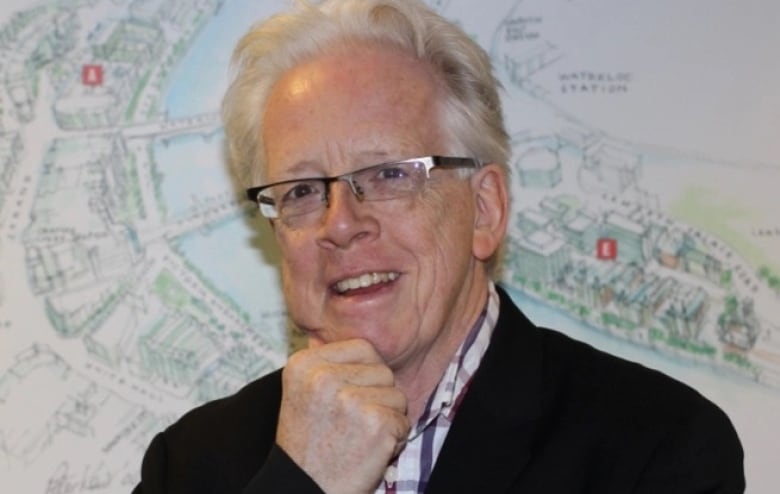Covidiots? Quarantinis? Linguist explains how COVID-19 has infected our language
Pandemic has led to the creation of more than 1,000 new words, says Tony Thorne

Are you going to a Zoom party later, to have a quarantini with friends during locktail hour?
Are those words brand new to you, like covidiot, coronallusional or drivecation? You probably know what PPE means, but did you know that three months ago?
The upheaval of the COVID-19 pandemic has led to more than 1,000 new words, or neologisms, according to Tony Thorne, a language consultant at King's College, London.
Thorne spoke to The Current's Matt Galloway about the "coronaspeak" he's been cataloguing.
Here is part of their conversation.
In Australia they talk about an isobar. That's where your quarantini is stocked- Tony Thorne
Why is it there are so many new slang words during this pandemic. Is it just because people have time on their hands to work things up?
That's certainly part of it. But whenever you have a big social upheaval — think of the recession, think of ... Brexit, think of war time, for example ... the process of generating new language goes into acceleration, goes into overdrive.
More and more new language is needed and invented in these completely new situations.
How many words have we created so far?
I've collected more than a thousand new terms — both technical, medical language and language being generated by people under lockdown.
But you've got to be careful because journalists tend to invent a lot of language and then claim that this is circulating. I've got around a thousand that I'm quite sure are authentic examples of new language.

What are some of your favourites?
It's hard to have a favourite, but if I'm really honest, I guess my two favourites are quarantini and locktail hour. Because this is at the end of the day when we feel we're entitled to have a cocktail.
There's a lot of silly words. Covidiot, morona — somebody behaving stupidly. Coronallusional, when your thinking starts getting disordered and you get confused.
The Australians are very good at slang. So we've got ISO for self-isolation. But also in Australia they talk about an isobar. That's where your quarantini is stocked. Isodesk is the workplace you've improvised to look good on video, in confinement.
And drivecation, I like. I think it may be Canadian. It's having a holiday in your motorhome, in your own driveway.
So you're not leaving anywhere, you just get in the motorhome and stay there and look out the window?
Yeah, yeah. And drink cocktails.
<a href="https://twitter.com/mattgallowaycbc?ref_src=twsrc%5Etfw">@mattgallowaycbc</a> <a href="https://twitter.com/TheCurrentCBC?ref_src=twsrc%5Etfw">@TheCurrentCBC</a> Aussie slang; “Strewth mate, the Rona bought out all the Bogan magpies, so I cracked the shits and opened a coldie”. Trans: let me tell you friend, Covid made people overshop, i was annoyed and had a beer. Nb Bogan=working class, ie, me 😛
—@Astro_yyzYou drink too many cocktails or have too much of the sourdough bread that you are making in quarantine, and you could put on what? The covid-fifteen or the covid-nineteen?
Covid-nineteen, yeah, that's an American term for the 19 pounds of extra body weight that you're supposed to accrue. I've got a feeling it could be even more than that in my case.
Are there any that you don't particularly like but they are circulating?
Zoom-bombing is a bad thing. This is when people hijack and interrupt video conferencing.
Corona trolls, you know, people who take advantage of all the internet traffic in order to create bad content. So these are some of the negative aspects, I suppose.

You also mentioned medical terminology that we're all using right now. Tell me a little bit about some of that.
We've had to come to terms with a whole lot of language, which normal people wouldn't have had to use. Things like ventilation, intubation, PPE — personal protective equipment — suddenly become a huge issue, and it's on the tip of our tongue.
The new coronaspeak, I would say, is coming from two directions. It's the official government and medical language of confinement and lockdown. And then ordinary people, if you like, are sort of fighting back. They're filling the gaps in the official narrative with their own inventions, describing their own private environments.
How does something like this shape the English language in the long term?
At the moment we're all in a state of semi-paralysis; we don't know how long this is going to go on. But previously, the language of wartime, some of it disappears, some of it subsides when the war's over. The language of the recession, of finance and economics, some of it we don't use anymore once we think we're out of recession.
But I think that this is such a big social upheaval and we're all concerned — for once everybody's involved. I think some of this language: the idea of medicalizing the way we speak, for example, the idea of talking about our personal space, is going to stay with us.

Written by Padraig Moran. Produced by Richard Raycraft.
